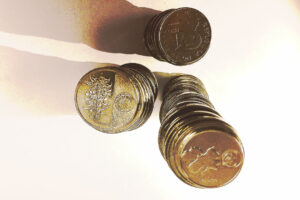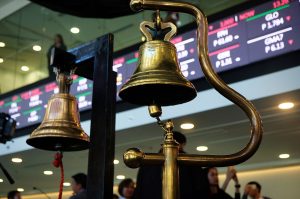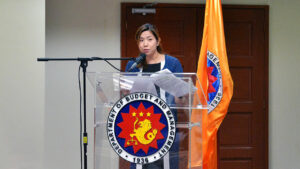Yes, 1 Timothy 6:10 is crystal clear that it is not money that is the root of all evil, it is the love of money. “…while some coveted after, they have erred from the faith, and pierced themselves through with many sorrows.” In the same spirit, Tony Robbins, in his 2014 book Money: Master the Game with sub-title “7 Simple Steps to Financial Freedom” distinguished between money and wealth, that money is rather explicit, raw and garish. “It’s intensely personal and highly charged.”
Robbins was correct to quote Sir Francis Bacon’s famous quip that “money is a good servant but a bad master.” He was more positive about those who treat money as important but not paramount. It is a tool to gain power and resources to serve the people and achieve “a life well lived.”
Abstracting from the tax breaks one gets out of philanthropy, it is difficult to deny that money masters who shared worthy social causes made a dent in making this world a better place to live and, of course, to be hopeful. We don’t think we can say this much to people who have specialized in plundering the public treasury of billions of pesos in the time of national health and disaster crises.
Among the biggest billionaires who have donated the most money, according to Forbes at the end of 2023 is Warren Buffett, who has chalked up a running total of $56.7 billion focusing on health and poverty alleviation. His net worth: $131 billion.
Next is the couple Bill and Melinda Gates whose accumulated social donation of $42.5 billion, and like Buffett’s, was allocated to health and poverty alleviation. Their combined net worth: $135.6 billion.
Who can ever forget the hedge fund founder George Soros who humbled the Bank of England and those exposed to pounds sterling in the 1990s? He donated $21 billion to such causes as democracy and human rights even as his net worth of $6.7 billion paled in comparison to those of both Buffett and the Gates.
Others with a more or less similar net worth who supported various social causes include Michael Bloomberg, MacKenzie Scott, Jim and Marilyn Simons, Mark Zuckerberg and Priscilla Chan, Steve and Connie Balmer, Phil and Penny Knight, and Jeff Bezos.
Even from this short list, we can produce one big narrative of how much one is prepared to give away relative to his net worth. In particular, Bezos of Amazon with his immense net worth of $196 billion donated a lifetime amount of only $3.3 billion to the environment and education. This was not even a tenth of what he gave to former wife Mackenzie in a $38 billion divorce settlement five years ago.
We can even spice it up with some people’s propensity to make money at the expense of things that are more valuable, like their health and their time, their family and self-worth, and in some cases, to Robbins, even their integrity.
To extend this issue of social conscience, who can ever forget the open letter of the world’s 250 richest individuals and corporations to the World Economic Forum this year challenging their own governments to “tax our extreme wealth.” In the last three years, these super rich individuals and corporations were saying that such tax policy “will not fundamentally alter our standard of living… nor harm our nation’s economic growth.” Instead, a wealth tax “will turn extreme and unproductive private wealth into an investment for our common democratic future.”
As we wrote in this space in January, this is not an isolated case of belated epiphany.
We quoted a survey done by London-based Survation that shows that of the 2,300 wealthy individuals with at least $1 million in investible assets minus their homes, or the richest 5% in G20 member nations, 74% of them were willing to be taxed to mitigate the widespread cost-of-living crisis and upgrade social services.
Back to Robbins’ book, it was Elliot Weissbluth who wrote its foreword. Weissbluth is founder and CEO of High Tower, a champion of a better model for transparent financial advice, who was among those leading minds in the financial sector who were interviewed by Robbins for this book on financial freedom. Robbins proposed, and Weissbluth agreed in the foreword, that there is a need “to empower individual investors while simultaneously helping those who have slipped through the cracks or been left behind by society.”
In 2014 when the book was released, it was reported that while two-thirds of Americans were concerned they wouldn’t have enough money when they retire, two million people lost their access to food stamps. Their immediate issue was where their next meal would come from.
That is what is ironic, that while trillions of dollars were made on Wall Street before the Global Financial Crisis, poverty in the US and elsewhere persists to this day. Weissbluth argued that the crisis actually unmasked the conflicts and injustices inherent in the financial system. Those large financial institutions have been set up “to make a profit for themselves, not their clients.”
Robbins’ Money: Master the Game was aimed exactly at filling the gap between theory and practice that continues to haunt numerous people around the globe. With an unjust society, there is a need to fill both bodies and minds to empower people to attain financial freedom. And no one can fault Robbins because his own life is devoted to combatting homelessness and hunger. He was feeding around 50 million people at the time the book was published and wished to double that number among the “often-forgotten populations.”
Robbins simplified the wisdom and vital philosophies he has accumulated over the years, drawing also from those of the leading financial minds into seven simple steps. As if he was talking with his readers, he wrote that “we’ll break the code and cut through the complexity that keeps most of us feeling like outsiders in the world of finance.”
First, we have to take the first step of the journey; know and realize that our money is at stake. We need to take control, we need to be familiar with the jungle that is the financial world.
Second, we need to exert great efforts to be one of the boys; we have to become an insider. We need to know the rules, know them well before we get into the game. Robbins in this section lined up nine big financial myths and demolished them all to pave the way for better, bolder investment.
Third, we should make the game winnable by having realistic a goal and plan. This will make us realize we don’t need an enormous amount to take the first step in the financial journey to make it big. Robbins has suggestions to speed up the realization of such a plan.
Fourth, we now need to make the most important investment decision of our life. How do we allocate assets? The key is not just to be wealthy, but to stay wealthy as well.
Fifth, it’s time we create a lifetime income plan, and for Robbins, along a scheme of upside without the downside. In this section, Robbins explained some creative ways by which we can stop or drastically limit losses and increase gains, something similar to those favored by banks, large corporations, and the wealthiest individuals.
Sixth, now we can invest like .001% of the population, invest out of the billionaires’ playbook. Robbins would like us to know the story, for instance, of Paul Tudor Jones who made a 60% monthly return in 1987 when the financial market was burning down all round him, or 21 years later, how he succeeded in making 30% when the market lost 50% and the global economy seemed to be disintegrating. It would be helpful to know the strategies of such luminaries as Charles Schwab, Carl Icahn, T. Boone Pickens and similar names in the industry like Ray Dallo.
Finally, and to go back to social conscience and philanthropy, Robbins advised us to “just do it, enjoy it and share it.” Robbins explained that the secret of living is giving. He stressed that sharing what we have can give us a better quality of life and a greater experience of joy. He was quite certain those who journeyed with him up to the sixth step must have made good so far, and they’ll be able to afford to help others.
What’s the proof of Robbins’ pudding?
He has touched and helped transform the financial lives of politicians like Bill Clinton, financial titans like Ray Dallo of Bridgewater Associates and John Bogle of the Vanguard Group, practical academics like Dr. David Babbel of Wharton, celebrities like Oprah Winfrey and Hugh Jackman, and super athletes like Serena Williams.
It’s not just about making money, but as Mark Benioff of Salesforce.com pointed out, Robbins walked him through a process of creating the life he wanted, and this is mastering money, rather than allowing money to master him, to do good while doing well. He did extremely well with his own software company that invests in people and social causes. He has also joined Robbins’ nonprofit Swipeout in providing “meals to now more than 100 million people a year, provide clean, disease-free water to more than three million families a day and to work to free both children and adults from slavery.”
This is the essence of financial freedom.
* With apologies to Jonathan Swift.
Diwa C. Guinigundo is the former deputy governor for the Monetary and Economics Sector, the Bangko Sentral ng Pilipinas (BSP). He served the BSP for 41 years. In 2001-2003, he was alternate executive director at the International Monetary Fund in Washington, DC. He is the senior pastor of the Fullness of Christ International Ministries in Mandaluyong.





